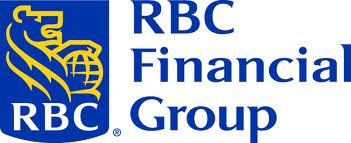282 Calgary Trail NW, Edmonton, Alberta
P: 780-439-7000
F: 866-293-5424
Tuesday, April 12, 2011 - Canadian household net worth hit a new record high in the fourth quarter of 2010
 |
RBC ECONOMICS RESEARCH – DAILY ECONOMIC UPDATE – March 14, 2011 |
Canadian household net worth hit a new record high in the fourth quarter of 2010
The market value of Canadian household net worth increased by 2.2% ($132 billion) in the fourth quarter of 2010 to $6.2 trillion. The gain pushed Canadians’ net worth to a new record high, 4.1% above the pre-recession peak seen in the second quarter of 2008 and 14.6% above the recessionary trough seen in the first quarter of 2009.
The improvement in household balance sheets reflected strength in equity markets that pushed the S&P/TSX composite index up a solid 8.7% in the fourth quarter and led the market value of household financial assets (which include equities, bonds and pension assets) to rise by 2.7% ($112 billion). The Canadian housing market remained strong in the fourth quarter as well, as existing home prices rose 2.8% during the quarter and pushed the value of non-financial assets (of which real estate holdings make up about 87%) up 1.3% ($43 billion) compared to the previous quarter.
Household liabilities expanded by 1.6% ($23 billion) to $1.5 trillion. Credit market debt (which includes mortgages, consumer credit and loans only) growth moderated slightly to 1.6% from the 1.7% rate seen in the third quarter of 2010 and the 2.0% increase in the second quarter of 2010. The increase in debt was led by a $15 billion (1.5%) increase in mortgage debt reflecting the continued activity in the real estate market, while consumer credit and loans expanded by $9 billion (1.6%). The growth in credit market debt was exceeded by that of both assets and net worth, pushing both the household credit market debt-to-asset and credit market debt-to-net worth ratios down for the second consecutive quarter to 19.4% and 24.2%, respectively (from 19.5% and 24.3%, respectively). As well, the oft-cited household credit market debt-to-personal disposable income (PDI) ratio declined to 146.7% in the fourth quarter of 2010 from its record high of 147.0% seen in the third quarter of 2010, as PDI growth of 1.8% in the quarter outpaced debt growth.
The slight moderation of the pace of household debt growth and the improvement of household leverage ratios will go some way to ease market concerns over household debt loads. Bank of Canada data for the first quarter of 2011 indicate that consumer credit growth has eased further still, with the annual rate of increase hitting lows not seen since the early 1990s. We anticipate that household debt growth will continue to moderate during 2011 reflecting the slowing in housing market activity due to a confluence of factors such as the more stringent mortgage regulations and rising interest rates. More important, in our view, is that today’s release of the National Balance Sheet Accounts showed continued growth in household net worth. The higher pace of growth of assets relative to debt indicates that household financial positions are improving. Moreover, the gain seen in the final quarter of 2010 raised household net worth per capita up to $181,700, representing the highest level on record. We expect that the continued improvement of household balance sheets will allay some of the Bank of Canada’s concerns regarding household debt, and we expect that the overnight rate will be increased by 25 basis points at the Bank’s meeting in May.
David Onyett-Jeffries, Economist, RBC Economics
To view the economic data calendars with trend charts, go to:
http://www.rbc.com/economics/html_calendars/ca/calendar.html (Canada)
http://www.rbc.com/economics/html_calendars/us/calendar.html (United States)
The statements and statistics contained herein have been prepared by the RBC Economics Research based on information from sources considered to be reliable. We make no representation or warranty, express or implied, as to its accuracy or completeness. This report is for the information of investors and business persons and does not constitute an offer to sell or a solicitation to buy securities.
Archives
Categories



